Looking to delve into the minds of some of the greatest thinkers of all time? If you’re looking to change your way of thinking or adopt a new life philosophy, we’ve got you covered. We searched the web to find the best philosophy books as recommended by experts, and we’ve listed them here for you.
Delving into the realm of philosophy is a journey of profound intellectual exploration, and the best philosophy books serve as indispensable guides. Among the classics is Plato’s “The Republic,” a timeless work that delves into the nature of justice and the ideal society. Another amazing title is Marcus Aurelius’ “Meditations” which is a collection of personal reflections and philosophical musings by the Roman Emperor, offering timeless wisdom on stoicism, virtue, and the art of living a meaningful life.
These books, among many others, continue to shape the way we think about the fundamental questions of existence, morality, knowledge, and society, making them essential reads for anyone embarking on a philosophical odyssey.
Philosophical lessons new and old apply to plenty situations in today’s world. Below are the top five best philosophy books most recommended by experts. Of course, we want to hear from you. Comment below to let us know which book expands your way of thinking!

The List: Best Philosophy Books, Per Experts
1. “Meditations” by Marcus Aurelius
“Meditations is a collection of 12 books written by Roman emperor Marcus Aurelius, who consistently journaled to remember his education in Stoic philosophy, and whose writings will teach you logic, faith, and self-discipline,” notes Four Minute Books. “If you’re looking for daily comfort, motivation, and wisdom, this is one of the best books you’ll ever pick up. I don’t see why anyone shouldn’t read this. The advice is as sound as when Marcus gave it to himself 2,000 years ago, and the book will benefit you in tough as well as glorious times. Plus, it might even inspire you to start journaling yourself!”
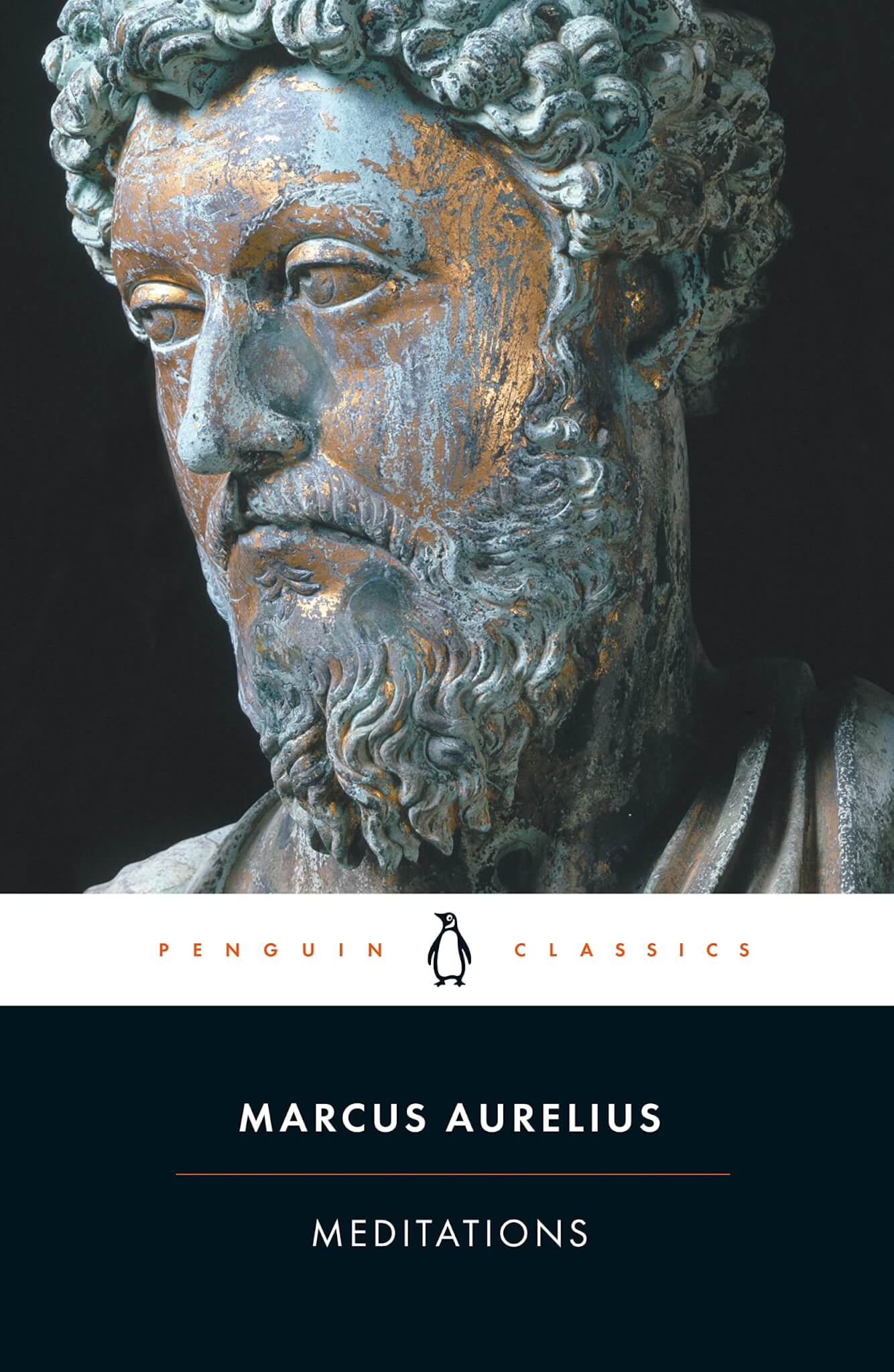
Life Hack writes, “It’s the only document of its kind to ever be made. The book focuses on the private thoughts of the world’s most powerful man who advises himself revolving around making good on his responsibilities and the obligations of his position. We know enough about Marcus Aurelius to know that he was trained in stoic philosophy and practiced every night on a series of spirituality exercises. These exercises were designed to make him humble, patient, empathetic, generous, and strong in the face of whatever problem he had to face off. And he faced plenty of problems since he was basically the emperor of roughly a third of the planet. All of that is poured into this book, and you are bound to remember a line or more that will be applicable in your life. It’s a philosophy book staple.”
“Everyone should read this book since it provides simple solutions to huge problems we face every day. The three biggest lessons I learned from reading Meditations are: Managing your expectations saves you from a lot of unnecessary headaches. Always focus on the internal and ignore the external. Don’t worry about anyone else’s opinions about you. If you were to rent a house for $1,000 per month, and your landlord told you that in exactly one year, he would increase your rent to $1,100 then after one year you won’t be angry. Why? Because you expected him to raise your rent. If he had not told you beforehand, then suddenly increased your rent, you would be furious. That’s the power of expectation. Aurelius teaches us how to use expectation to our advantage in our daily lives when putting effort into something and expecting a certain result. The practice can be useful in marriage, business, relationships or fitness goals,” adds Become a Writer Today.
2. “Man’s Search for Meaning” by Viktor Frankl
Four Minute Books says, “Man’s Search for Meaning details holocaust survivor Viktor Frankl’s horrifying experiences in Nazi concentration camps, along with his psychological approach of logotherapy, which is also what helped him survive and shows how you can – and must – find meaning in your life. There are few holes this book couldn’t make you crawl back out from. Beyond inspiring you to rethink meaning and find it wherever you go, however, it will also instill tremendous respect in you for those who’ve come before us. This book is enlightening on both a personal and a historical level, and I think almost anyone would benefit from reading it.”
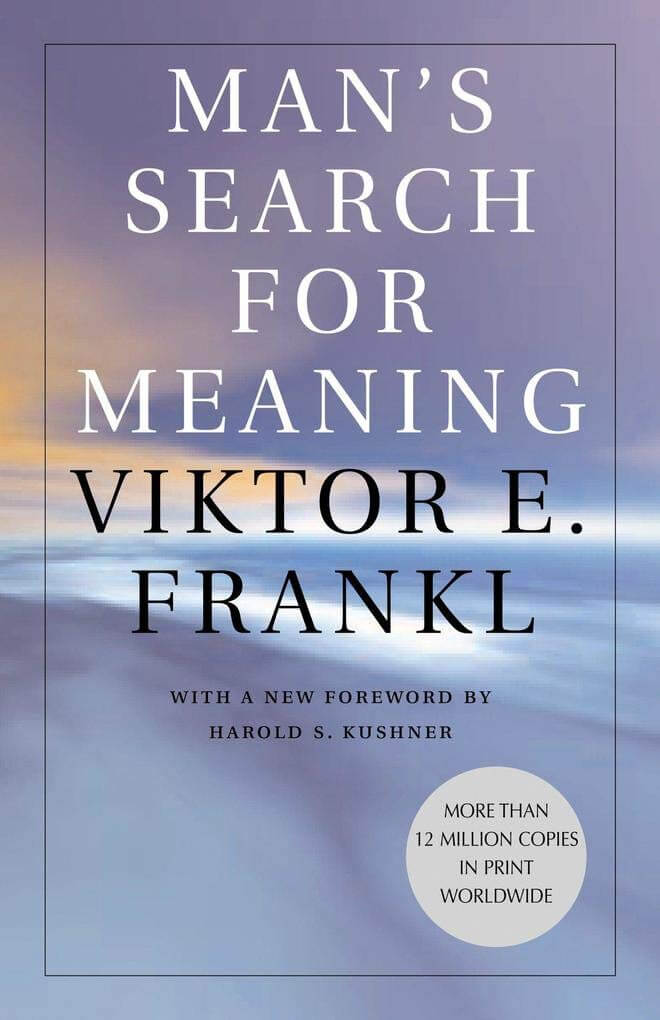
“Outlining Frankl’s theory of ‘logotherapy’, he argues that human beings cannot avoid suffering in life, but we have the power to give it meaning and thus endure it with renewed purpose. He holds that our primary drive in life is not pleasure, as Freud maintained, but the discovery and pursuit of what we personally find meaningful. All the more impactful for where it was written, Frankl tells the story of his time spent within Nazi extermination camps, including Auschwitz, while his parents, brother, and pregnant wife perished. Library of Congress found Man’s Search for Meaning among the ten most influential books in America,” mentions Taylor Pearson.
Read This Twice invites you to “Discover how to find meaning in suffering and move forward with renewed purpose by exploring the riveting memoir of a psychiatrist who survived Nazi death camps. In this influential book, based on his own experience and the stories of his patients, the author argues that we cannot avoid suffering but we can choose how to cope with it and find meaning in it through his theory of logotherapy. This book is a must-read for anyone searching for significance in the act of living.”
This book is also recommended by StudyFinds’ Associate Editor, Sophia Naughton: “One of my favorite quotes from this book is, ‘Everything can be taken from a man but one thing: the last of human freedoms — to choose one’s attitude in any given set of circumstances, to choose one’s own way.'”
3. “Letters from a Stoic” by Seneca
“Similar to Marcus Aurelius, Seneca was another powerful man in Rome. He was a brilliant writer at the time and was the kind of guy to give great advice to his most trusted friends. Fortunately, much of his advice comes in letters, and those letters happen to be in this book. The letters themselves provided advice on dealing with grief, wealth, poverty, success, failure, education, and more. While Seneca was a stoic, he has a more practical approach and has borrowed from other schools of thought for his advice. As he said when he was alive, ‘I don’t care about the author if the line is good.’ Similar to Meditations, there are several brilliant lines and advice that are still relevant to this day,” notes Life Hack.
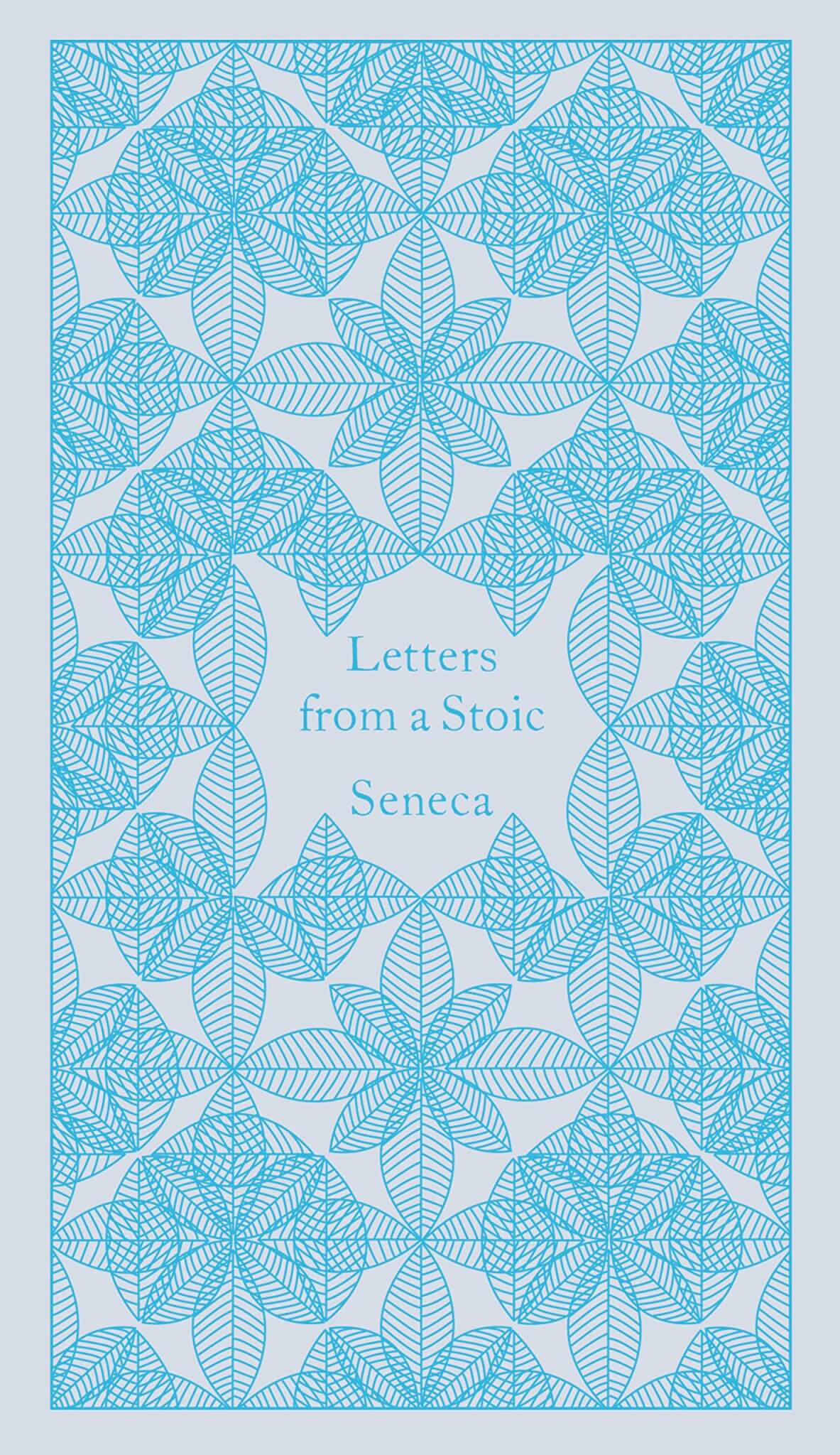
“If we are honest enough, there are only a few people in our lives that offer sound advice,” states Best Writing. “In his time, Seneca played that role and was a trusted advisor to his friends. The book unveils the letters he wrote to friends who dealt with grief, failure, poverty, wealth, and success, among many other things. He embraced practical philosophy, learning from everyday life and from whoever and wherever wisdom comes.”
“Experience the spiritual and philosophical wisdom of the Stoic philosophy through the letters of a true master,” says Read This Twice. “Written by a conflicted minister in Nero’s court, these letters provide insight into upstanding Stoic ideals and a good way of life. Spiritual and progressive for their time, these letters offer criticism of harsh treatment of slaves and the barbaric shows in the arena. Enjoy the pointed and philosophical style of the Latin Silver Age in these essays disguised as letters to Lucilium.”
4. “Beyond Good and Evil” by Friedrich Nietzsche
Nietzsche’s work may not be easily read by all, but this work of his is easiest to comprehend, according to Taylor Pearson. “Nietzsche’s ‘Beyond Good and Evil’ is one of his slightly more accessible, though he is not known for his accessibility! In Beyond Good and Evil, Nietzsche breaks down the paradoxes of conventional understandings of morality, and in doing so sets the stage for much of the 20th century thought that would follow. Nietzsche is probably the most influential philosopher on my own thinking, if only because he shattered many of my pre-existing beliefs and illusions.”
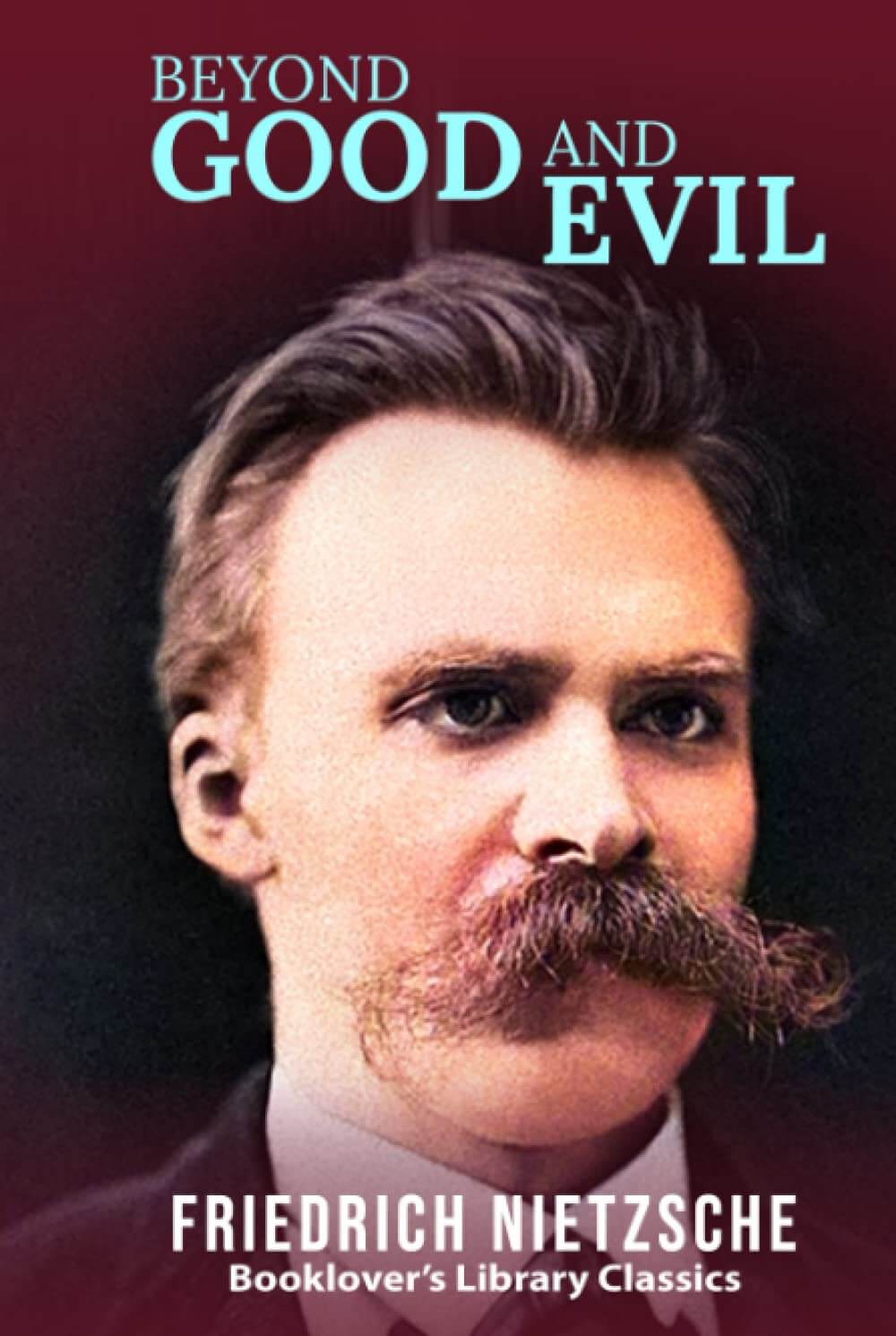
“Friedrich Nietzsche played a big role in the philosophical world,” states Life Hack. “He was one of the leading philosophers of the existential movement, and it all came through this particular book. He is a brilliant mind. However, the issue with a lot of his work is that it’s all written in German. Fortunately, this book is one of the slightly more accessible ones since it’s translated. Within the book, he breaks down the paradoxes of conventional understandings of morality. By doing this, he sets the stage for a lot of the 20th-century thought process that followed.”
Read This Twice shares that “This European philosophy classic by a renowned philosopher challenges Western thought’s notions of truth, God, good, and evil. It critiques false piety and ‘slave morality’, in favor of a philosophy that celebrates the present, and emphasizes the individual’s ‘will to power’. With an introduction by Michael Tanner and a translator’s commentary, this edition of Beyond Good and Evil by Friedrich Nietzsche is a must-read for lovers of philosophy.”
Book Bub adds, “Friedrich Wilhelm Nietzsche’s Beyond Good and Evil is a critical response to metaphysical writings that try to define good and evil. Nietzsche advocates for an individualized way of thinking that focuses on the realities of life and that ignores traditional moral conventions, including religion, free will, and self-consciousness. Divided into nine subjects areas, Beyond Good and Evil was written in a polemical style consisting of 296 short sections. Published shortly after Nietzsche’s Thus Spoke Zarathustra, Beyond Good and Evil expands on and adds to the ideas of that previous work.”
5. “The Republic” by Plato
“The Republic is one of the most important political and philosophical works in history, written by Plato, the archetypal philosopher and one of Socrates’ students, in the form of a dialogue about justice and political systems. If you’re in politics, this is a must-read. If not, it’s still a valuable read on what it means to be governed, how to be a good citizen, and why philosophers can be good rulers but not necessarily will be. All-around a classic worth picking up,” says Four Minute Books.
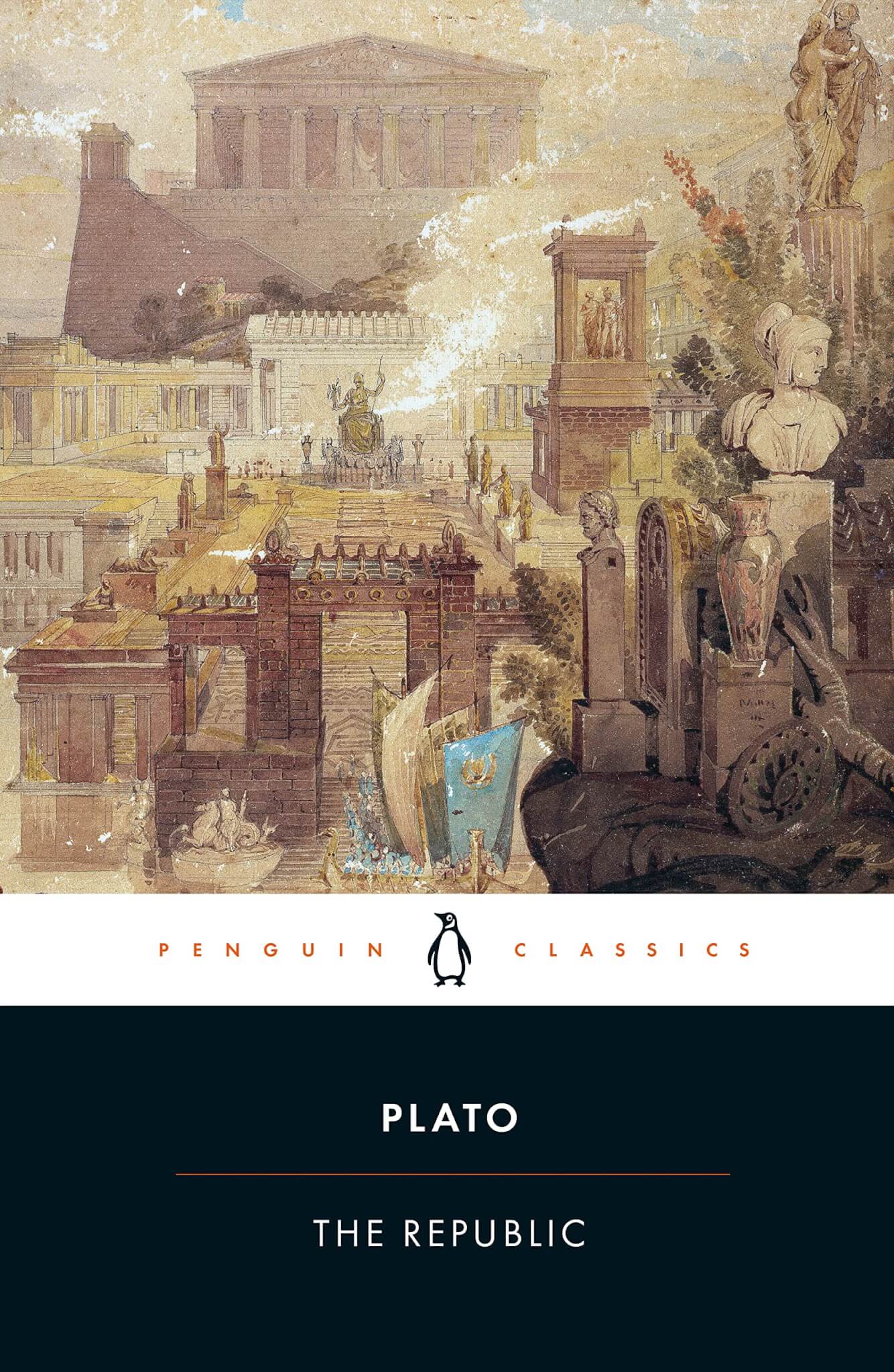
On My Booklist shares that “The Republic is a Socratic dialogue written by Plato around 380 BCE concerning the definition of justice, the order, and character of the just city-state, and the just man. It is Plato’s best-known work and has proven to be one of the most influential philosophies and political theory works. The dialogue takes place between Socrates and several other men, including Socrates, among others. Throughout the course of the dialogue, Socrates argues that justice is more than mere obedience to the state’s laws; instead, it is a virtue that should be pursued for its own sake. He also contends that the just city-state would be ruled by a philosopher-king, who would be able to lead the citizens to evolve and leave behind the physical.”
Become a Writer Today notes that “This book focuses on Plato and his ideas of the ‘perfect republic.’ He tells stories about himself and writes a lot about the nature of justice and how he and his men aimed to enforce this justice. Plato includes countless opinions of others about how an ideal republic should be governed. One of the first issues they discussed was true justice. Some said justice is returning favors to those who helped you while being a good person. Plato provides a unique world view on how philosophers debate this issue and recommend their own versions of justice. Plato concludes that justice isn’t just mere strength but using that strength to do good. Everyone should benefit from justice, not just the strong. Another compelling topic this book considers is Plato’s top five regimes. His order from best to worst was: Aristocracy, Timocracy, Oligarchy, Democracy, [and] Tyranny. Interestingly, he put aristocracy first and democracy just above tyranny; however, many people today will agree that democracy is by far the best system of government.”
Taylor Pearson adds that “Plato, the greatest philosopher of ancient Greece, was born in Athens in 428 or 427 B.C.E. to an aristocratic family. He studied under Socrates, who appears as a character in many of his dialogues. He attended Socrates’ trial and that traumatic experience may have led to his attempt to design an ideal society. Following the death of Socrates he traveled widely in search of learning. After twelve years he returned to Athens and founded his Academy, one of the earliest organized schools in western civilization. Among Plato’s pupils was Aristotle. Some of Plato’s other influences were Pythagoras, Anaxagoras, and Parmenides.”
You may also be interested in:
Sources:
- Four Minute Books
- Become a Writer Today
- Taylor Pearson
- Best Writing
- Life Hack
- Read This Twice
- Book Bub
- On My Booklist
Note: This article was not paid for nor sponsored. StudyFinds is not connected to nor partnered with any of the brands mentioned and receives no compensation for its recommendations. This post may contain affiliate links.
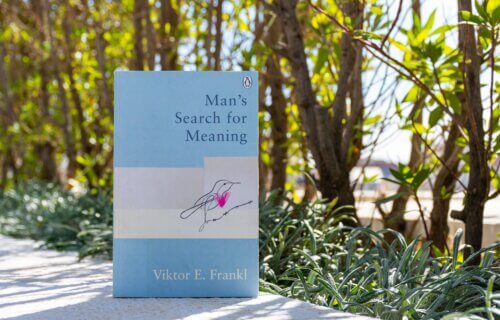
How about some Christian philosophical classics such as those by CS Lewis?
The Screwtape Letters
Mere Christianity
The 4 Loves
The Abolition of Man
The Problem of Pain
Miracles
The Great Divorce
I’ve read two of the books mentioned and have been meaning to read CS Lewis. What do you suggest I start with?
Mans Search for Meaning is a GREAT book. I’ve read it numerous times and actually wrote a paper on it, ie. Existentialism, in College. 👍